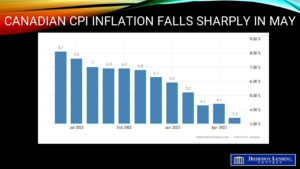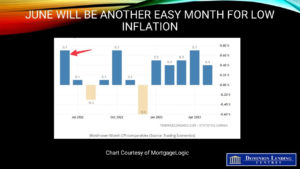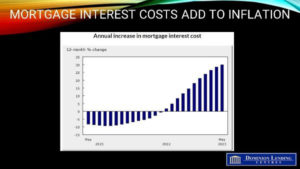 Debt Reduction Key as Interest Rates Soar.
Debt Reduction Key as Interest Rates Soar.
There are lots of reasons people fall into debt but only one way out — and it requires a combination of planning, discipline, and persistence. With the rise in interest rates, there is no better time to map out an action plan to reduce your debt.
Start by gathering information about all of your debts — student loans, credit cards, lines of credit, car loans, overdue bills — everything. Make a list of all the debts with the details of the amounts owed, interest rate, and minimum monthly payments. This will help you set goals, create a timeline, and prioritize your repayments.
Your first goal is to make sure everyone gets paid the minimum amount required to avoid your debts going into arrears. Overdue bills and missed payments are going to play havoc on your credit score and it can take a lot of time and effort to rebuild.
The next step is to figure out how much more you can allocate from your current income for debt repayment. One common debt pitfall is to look at your situation and conclude that more income is the solution — and immediately start looking for ways to make extra money. While more income can obviously help you reduce debt, it shouldn’t be your first step.
The most important step is to create a realistic budget. Reducing the expense side of your monthly budget is going to free money to pay off debt much faster than pumping up your income on the top line. You need to identify areas where you can reduce expenses and channel those savings to your debt repayment fund. It’s critical to start accurately tracking your expenses and get the actual data on your spending, not just a guesstimate based on your feeling.
When it comes to who to pay first, there are two commonly used strategies for prioritizing debts: the debt avalanche method and the debt snowball method. With the avalanche method, you focus on paying off the debt with the highest interest rate first while making minimum payments on other debts. The snowball method involves paying off the smallest debts first, regardless of interest rates, and then moving on to larger debts.
From a financial perspective, the avalanche method is the best way to pay off debt, especially if the interest rate differential is large. The snowball method may improve your motivation, but it makes no sense to pay off a small home equity loan at 6% if you are carrying credit card debt at 20%!
Interest rates on credit card balances haven’t been affected by Bank of Canada rate changes (unlike other loans!), but they are already so high that in almost every case they should be the starting point for your debt reduction efforts. If you have been making payments and your credit rating is not too bad, you may be eligible for a credit card balance transfer offer with a promotional 0% interest rate for a specific period. Make sure you have a realistic plan and are disciplined before you sign up for any balance transfer options or credit card consolidation loans. They are a good option for managing credit card debt as they lower or defer the interest, but you need to stay on the payment schedule. If you have any investments (TFSA?), selling them to pay off credit card debts usually makes financial sense.
Paying off debt is a long-term commitment that requires discipline — there is no quick way out. Once you get started and see some progress, your mindset will begin to shift, and a huge weight will start to lift. Becoming debt-free or at least in a position where debt stress doesn’t consume your life will do as much for your mental health as it will for your financial health.


 After You Buy – Closing Tips
After You Buy – Closing Tips Title fraud is a danger in B.C., and home insurance can’t protect you from it
Title fraud is a danger in B.C., and home insurance can’t protect you from it




 How Job Loss Affects Your Mortgage Application
How Job Loss Affects Your Mortgage Application

 How to Pay Off Your Mortgage Faster
How to Pay Off Your Mortgage Faster